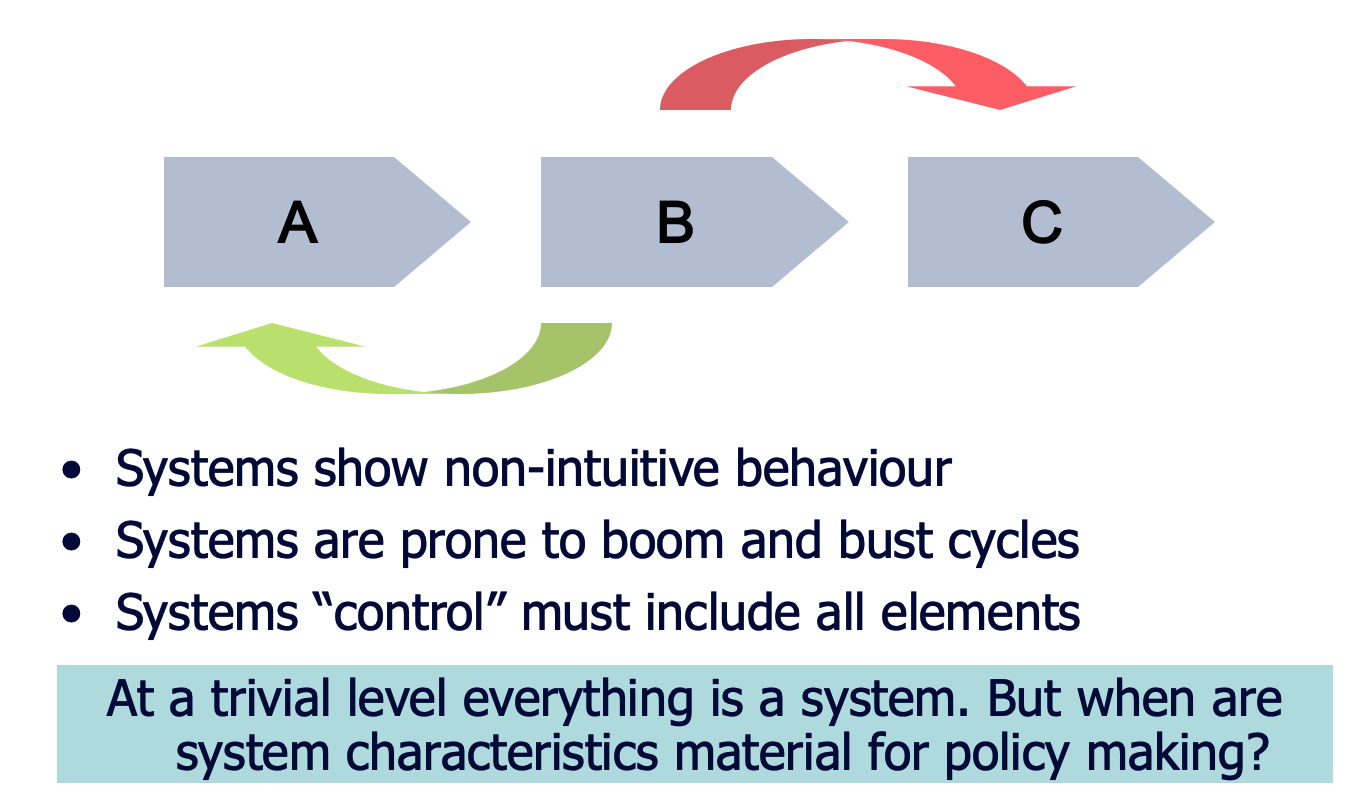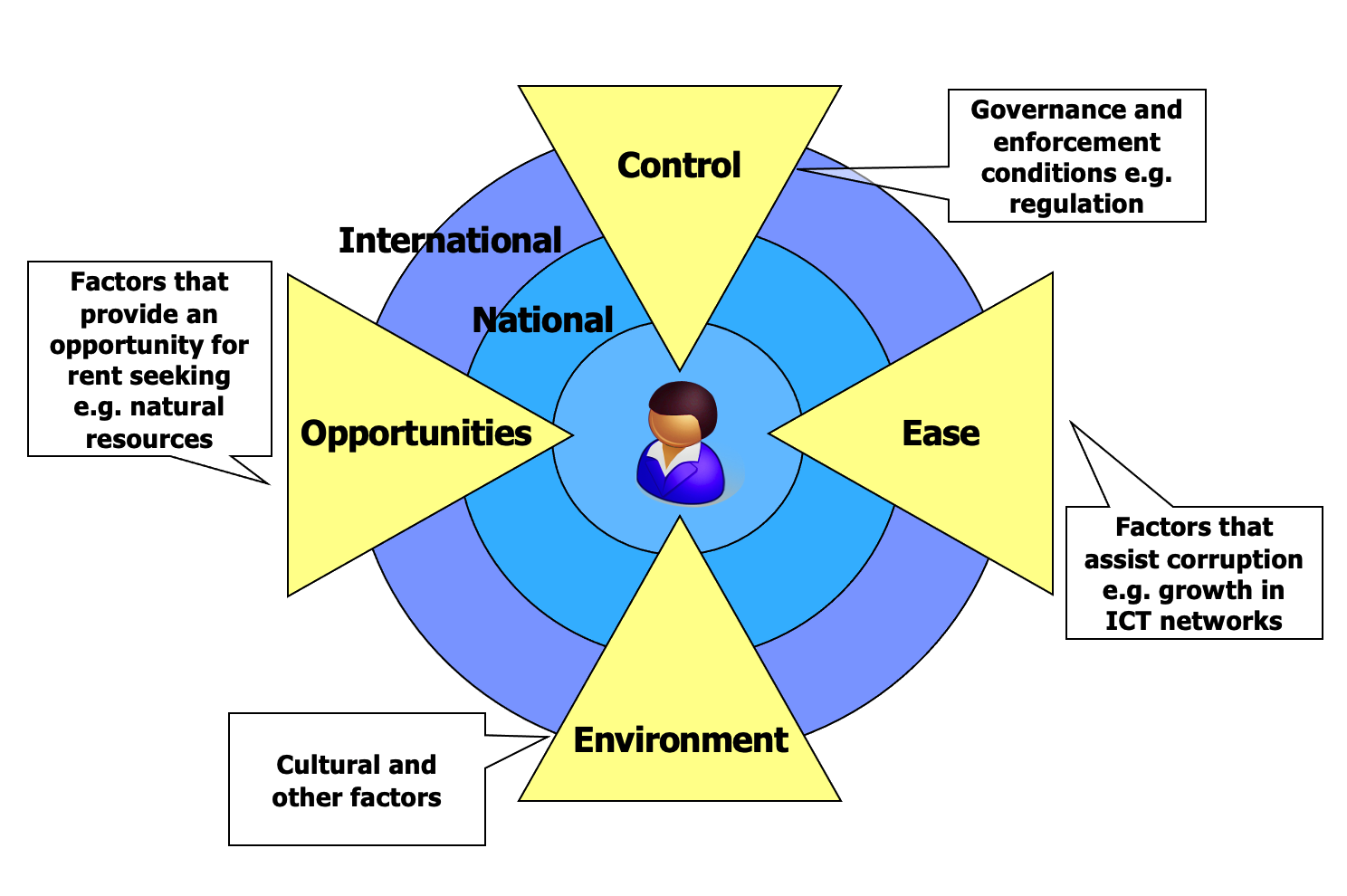Systems Thinking Overview, PMSU 2005.
Practical Systems Analysis
Systems analysis is critical to developing institutional reform & policy prescriptions in all fields of governance. However, the complexity of real systems and lack of available data means that formal systems modelling is often too slow or partial to inform real life decisions.
Nick Mabey has worked on applied systems analysis since his research at MIT Energy Lab. He has focused on developing guidelines and examples for how to apply systems thinking in ways that can support decision makers’ judgements in real time rather than relying on “black box” models.
This approach combines traditional systems approaches with heuristic approaches to complexity such as the Cynefin Framework to provide decision makers with simplified systems models which hopefully give a clearer understanding of the strengths and weaknesses of different policy options in practice. For example as applied to a range of projects in the UK Prime Minister’s Strategy Unit.
Systems thinking was particularly important in his work on reforming UK government country at risk of instability response systems where issues of the over-determined causality of specific conflicts undermined whole of government working. In his work on UK fisheries management reform the results of multiple systems models needed to be combined into a workable governance system, including biological stock dynamics, fleet economics and enforcement incentives tackle widespread distrust from all stakeholders in the credibility of the existing system.
Nick has continued to work at E3G to apply systems analysis to sustainability problems and design approaches around the needs of decision makers and the practical limitations of institutional delivery.

